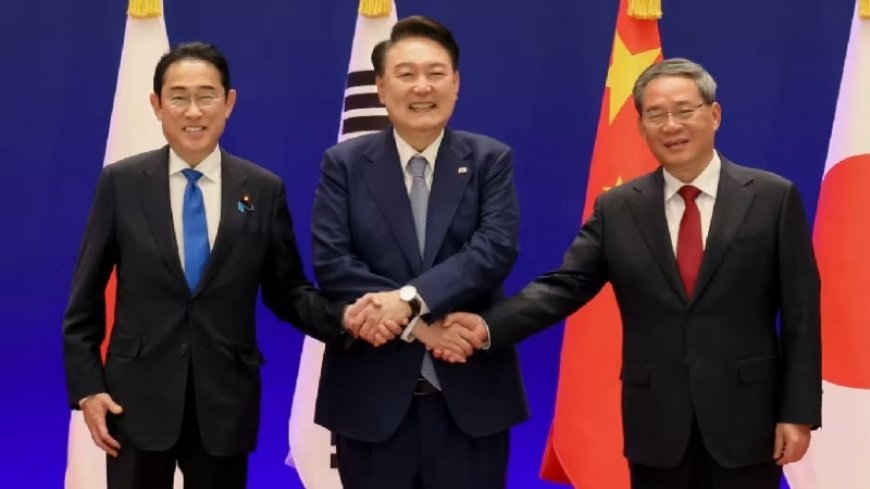Will the US Allow Japan and South Korea to Improve Relations with China?
Over the past few years, America has shown North Korea as a dangerous dragon that intends to burn down Japan and South Korea, and with this narrative, America has succeeded in controlling the security and military management of these two countries.

The leaders of South Korea and Japan have recently sought to restore economic cooperation with China as their largest trading partner. After years of tense relations, their talks are still limited by the extent to which the US allows South Korea and Japan to improve relations with China.
The recent tripartite meeting was the first in four and a half years, with the presence of South Korea's President, Japan's Prime Minister and Premier Li Keqiang, China's second-highest ranking official.
The talks mainly focused on issues that could find common ground, such as protecting supply chains, encouraging trade and cooperation in facing the challenges of population aging and emerging infectious diseases. Several issues also emerged regarding regional security issues such as Taiwan and North Korea.
The three countries; Japan, China and South Korea agreed to expand practical cooperation so that people in their respective countries can feel the benefits. This of course requires permission from South Korea and Japan from America.
Meanwhile, some American media outlets are trying to create psychological barriers for decision makers in Japan and South Korea by highlighting topics such as the threat of China and North Korea. For example, the New York Times newspaper in its article mentioned the threat of North Korea and included titles such as the problem of democracy in China, the resurgence of Mao, the crisis of capital needs in China, and the economic problems experienced by Chinese companies.
The US media tried to give the impression to Japanese and Korean audiences that the benefits of Japan and South Korea's relations with China benefited China alone, not those two countries. Of course, it is clear that China ultimately views North Korea as an actor countering American military threats and not as an actor intervening in relations between South Korea and Japan. Because basically North Korea does not have such capabilities.
In recent years, America has shown North Korea to be a dangerous dragon intent on burning down Japan and South Korea. With this narrative, America succeeded in controlling the security and military management of the two countries. On the other hand, China considers this problem to be a political dispute and must be resolved through political negotiations.
America launched provocations against Japan and South Korea, so far it has launched sensitive drills against alleged threats from North Korea and China which have provided high revenues to American arms manufacturing companies.
Japan and South Korea together host more than 80,000 US troops on their territory, whose presence is predicated on America's constant assertions that China and North Korea pose a threat.
These two countries, which are not similar to America, have no history of aggression in at least the last few centuries. However, in the opinion of some Japanese and South Korean politicians, they are aware of the errors in American and Western assumptions and are trying to strengthen their neighborly relations.
These East Asian neighbors, which together account for more than a fifth of global economic output, need regional stability and cooperation, especially in supply chains, to recover from the post-pandemic economic recession.
China has agreed to resume negotiations on a free trade agreement between its three neighbors, and emphasized greater economic cooperation as a means of maintaining regional peace and stability.
This has made the United States a party that interferes in Asian affairs, trying to pressure Japan and South Korea to control the development of regional relations based on China's neighborly policy as a supporter of a multipolar world.(PH)













































